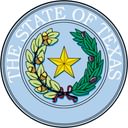
As voters across the United States cast their ballots on election day, the Death Penalty Information Center’s July 2024 report, Lethal Election: How the U.S. Electoral Process Increases the Arbitrariness of the Death Penalty, provides valuable context on the intersection of politics and the death penalty.
While all eyes are on the race for U.S. President, it is local races for prosecutor, state judge, legislator, and governor that will decide whether and how the death penalty is used. The President only has jurisdiction over federal death penalty cases, which currently represent about 2% of all death row prisoners and 1% of all executions carried out in the U.S. since 1976. He or she selects the Attorney General, who determines whether to seek death sentences in eligible federal cases and how to defend existing federal death sentences. The President also has clemency power for people convicted of federal crimes, including those on federal death row.
Meanwhile, voters in 33 states, including 23 states that have the death penalty, will elect or decide whether to retain state supreme court justices on election day 2024. As explained in Lethal Election, “A 2015 Reuters investigation found that state supreme courts with appointed judges are more than twice as likely to reverse death sentences as state supreme courts with elected judges, a difference of 26% to 11%. In other words, a death-sentenced prisoner in a state where judges must campaign for reelection has a much lower chance of winning relief on appeal.” DPI’s analysis of state supreme court decisions in three states from 2013 – 2022 found that “courts affirmed about twice the number of death sentences in election years compared to non-election years, a median of 6 versus 3 death sentences. …These findings suggest that state supreme court justices are more likely to rule against death-sentenced prisoners when facing the increased scrutiny and pressures of an upcoming election.”
Local prosecutors will be elected in at least one county per state in 14 death penalty states. The U.S. is the only country in the world to elect local prosecutors. These elected officials have enormous discretion in whether and when to seek death sentences. Changes of district attorney in counties that once led the nation in death sentences, including Philadelphia, PA; Los Angeles, CA; and Harris, TX have resulted in dramatic declines in the number of new death sentences.
DPI’s research also found that clemency decisions by governors were affected by elections. Examining all grants of individual clemency since 1972, a majority (53.6%) occurred when the governor was not facing reelection. When the executive had the sole power to grant clemency, that percentage jumped to 84.6%. “This means that executives with sole authority to grant clemency almost exclusively used their power when they did not have to face voters. When they did face reelection, these executives granted individuals clemency only four times over five decades.”
“The U.S. electoral process inserts many elements of unpredictability and unfairness into death penalty cases. A life-or-death decision should not depend on whether an appeal or clemency petition is heard in an election year, nor should a defendant’s fate rest on who donated money to an official’s campaign fund,” said Robin M. Maher, Executive Director of the Death Penalty Information Center. “But the data suggest that is exactly what is happening.”
“Lethal Election: How the U.S. Electoral Process Increases the Arbitrariness of the Death Penalty,” Death Penalty Information Center, July 1, 2024.
2024 judicial election information: State judicial elections, 2024, Ballotpedia, accessed November 4, 2024
2024 prosecutorial election information: Daniel Nichanian, Which Counties Elect Their Prosecutors and Sheriffs in 2024?, Bolts, December 12, 2023.



